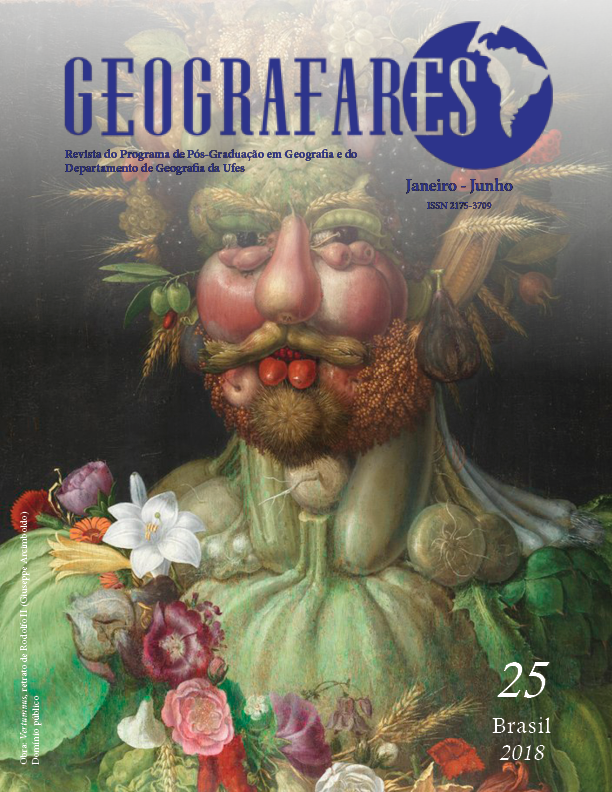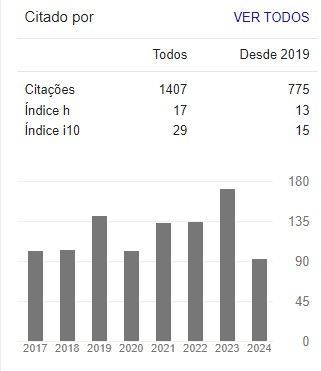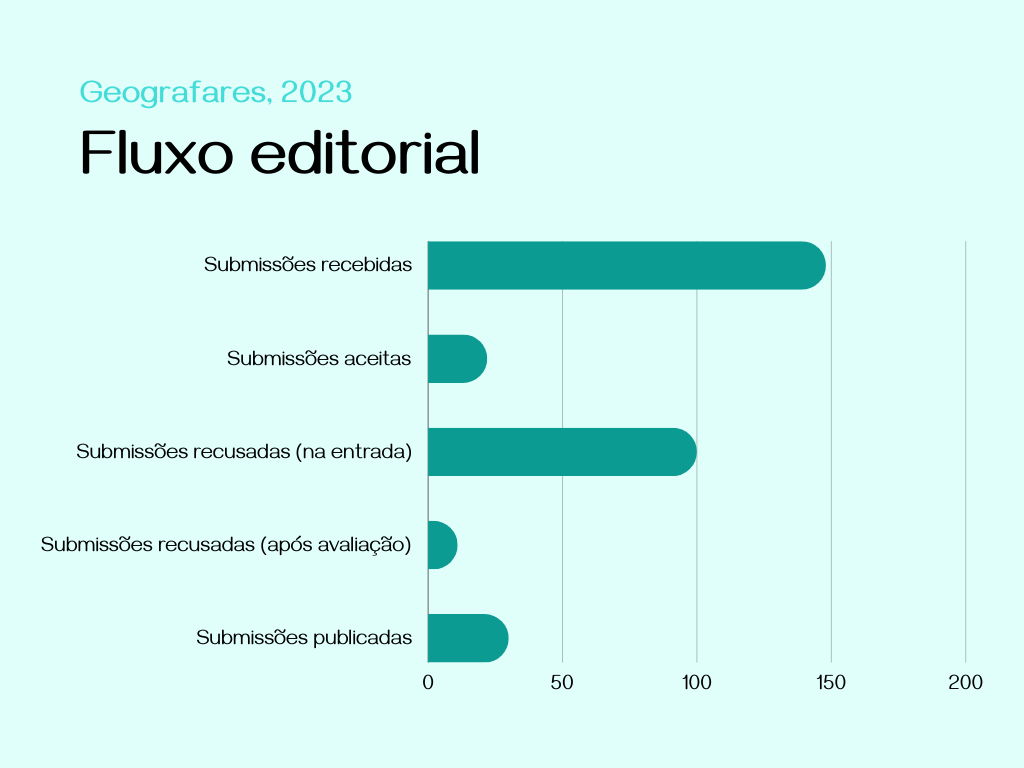FOOD RESISTANCE: Investigating modes of production of subjetivity through eating practices in the contemporary city
DOI:
https://doi.org/10.7147/GEO25.17406Abstract
The article begins with a discussion of the field of studies of Subjectivity (GUATTARI, ROLNIK, 2010), to reflect on subjective modes of production, through eating practices in the context of the contemporary city. It aims to explore the transformations that have occurred in the last century in the context of cities and their consequences in the logic of the production of food practices. Such reflection will be woven based on the cartographic method (PASSOS, KASTRUP, ESCÓSSIA, 2014ª, 2014b, FONSECA, NASCIMENTO MARASCHIN, 2012), supporting the cartography of the multiplicity of discourses and food practices present in the context of the contemporary city. The article is based on a bibliographical review involving discussions of the human and social sciences that can expand the field of discussion, presenting already, the perspective that this field does not fit within specific disciplinary sectors. As a result of the analyzes, it is possible to show that the growing urbanization phenomenon in connection with the modernization / mechanization of agricultural practices - supported by capitalist development - produces food practices as a reflection and reproduction of this mode of development. Resulting in the constitution of the habit of eating as a mere act of consumption, one among so many products on the shelves of the market. At the same time, it is possible to see the act of eating as a possibility of reinventing the ways of life in this current context, making bets in an eclogical (GUATTARI, 1990; SANTOS, 2002), as a reinvention of the practices of self care and (Foucault, 2006b).
Keywords: subjectivity; city; food practices.
Downloads
Downloads
Additional Files
Published
How to Cite
Issue
Section
License
Copyright (c) 2018 Geografares

This work is licensed under a Creative Commons Attribution 4.0 International License.
Copyrights Declaration
Authors who publish in the journal agree with the following terms:
- Authors will keep their copyrights and grant the journal the right to their first publishing, simultaneously licenced under Creative Commons Attribution License which allows sharing their work with authorship recognition and initial release through this journal.
- Authors may sign additional contracts separately diffusing a non-exclusively version of the paper published in this journal (i.g. publishing in institutional repository or as a book chapter), once citing the authorship and initial release through this journal.
- Authors are encouraged to publicize and diffuse their paper online, for example onto institutional repositories or on their personal websites.



























